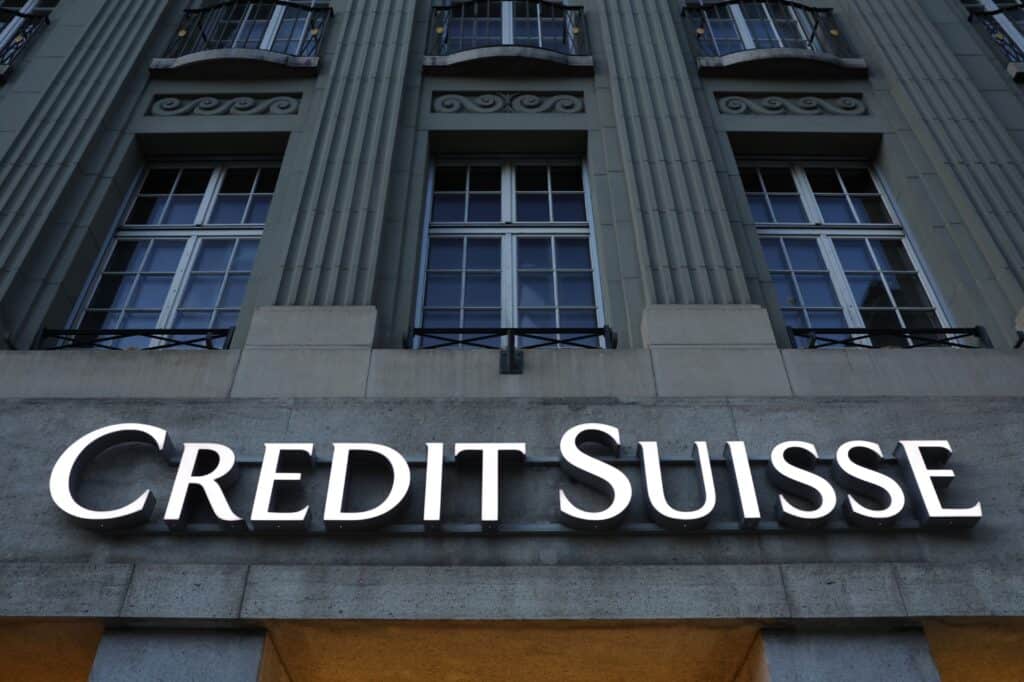
UBS Navigates High Stakes Takeover of Credit Suisse: A Closer Look at AT1 Bonds
Unraveling the Complexities of UBS's $3.4 Billion Credit Suisse Acquisition and its Implications
UBS Group AG's acquisition of Credit Suisse, its struggling Swiss competitor, signifies a high-stakes rescue operation with potential costs and benefits amounting to tens of billions of dollars. The accelerated transaction, completed under the duress of a global banking crisis, underscores the fragility of Credit Suisse and the challenges UBS will face in integrating the lender.
As highlighted in a regulatory presentation, UBS estimated a $13 billion negative impact due to fair value adjustments of the consolidated group's financial assets and liabilities. It further projected $4 billion in potential litigation and regulatory costs resulting from outflows. Factoring in additional elements such as a shift in accounting standards, the total blow stands at $28.3 billion.
However, UBS also anticipates financial offsets totaling $17.1 billion, primarily from a write-down of Credit Suisse's AT1 bonds among other elements. Additionally, a one-off gain of $34.8 billion is projected, arising from negative goodwill — the acquisition of Credit Suisse for a fraction of its book value. This financial buffer could absorb potential losses and possibly boost UBS's second-quarter profit if the transaction closes as scheduled next month.
Despite the enormous financial implications, UBS shares remained relatively steady, suggesting that investors had anticipated these impacts. Yet the magnitude of the adjustments underscores the challenges UBS faces. The estimates provided by UBS are preliminary, and the numbers could change materially. The bank also signaled that restructuring provisions might follow, though specific numbers were not offered. As Vontobel analyst Andreas Venditti noted, restructuring charges will likely be booked after the transaction's completion, with savings chiefly derived from staff reductions.
UBS has imposed several restrictions on Credit Suisse during the takeover, including caps on lending, spending, and the scale of certain contracts. These constraints aim to manage the risks related to Credit Suisse's previous lapses in risk controls. While some clients may be prompted to leave Credit Suisse due to these restrictions, UBS does not expect a significant acceleration in asset outflows, which the bank reported as having already been stemmed by Credit Suisse.
The urgency of Credit Suisse's financial situation necessitated a swift response. UBS had less than four days for due diligence before finalizing the deal. The Swiss authorities, seeking to stabilize the market and prevent possible contagion in the financial system, orchestrated the takeover deal over a weekend in March. UBS agreed to buy Credit Suisse for 3 billion Swiss francs ($3.4 billion) in stock and assume up to 5 billion francs in losses from winding down part of the business.
This transaction marks the first rescue of a global bank since the 2008 financial crisis. It's backed by up to 250 billion Swiss francs in public funds and will create a wealth manager with more than $5 trillion in invested assets and over 120,000 employees globally.
UBS warned that challenges at Credit Suisse, with its 167-year history, will persist, and anticipates substantial pretax losses for its one-time rival in the second quarter and throughout the year. Post-transaction, UBS Group AG intends to manage UBS AG and Credit Suisse AG as separate parent companies. The integration process could take three to four years, during which each institution will retain its own subsidiaries and branches, serve its clients, and deal with counterparties.
The controversial aspect of the deal was regulator FINMA’s decision to wipe out around $17 billion of Credit Suisse’s additional tier-one (AT1) bonds before shareholdings. This unconventional order of write-downs has sparked legal action from AT1 bondholders. However, UBS CEO Sergio Ermotti maintains that despite potential risks, the Credit Suisse deal is not risky and promises long-term benefits.
Despite these challenges, UBS remains optimistic about the long-term benefits and potential of the merger. The bank's acquisition of Credit Suisse at a fraction of its book value is expected to provide substantial financial buffers, potentially propelling UBS's profit in the forthcoming second quarter.
The transaction wasn't initially sought after by UBS. In fact, as per the UBS Strategy Committee's evaluation that began in October 2022, an acquisition of Credit Suisse was deemed "not desirable." However, with Credit Suisse's financial situation deteriorating due to massive net asset outflows triggered by liquidity concerns towards the end of 2022, the situation escalated. The Swiss authorities urged UBS to step in as the potential contagion to the financial system from Credit Suisse's collapse seemed imminent.
UBS, in a recent filing with the U.S. Securities and Exchange Commission, admitted to the rushed nature of the deal, stating it had less than four days to conduct due diligence under "emergency circumstances." Given this short timeframe, it's possible that UBS's ability to fully evaluate Credit Suisse's assets and liabilities prior to the takeover may have been compromised. If so, UBS may have agreed to a rescue operation considerably more difficult and risky than initially anticipated.
However, the bank's CEO, Sergio Ermotti, conveyed confidence in the deal, asserting that it was not overly risky and would generate long-term benefits. This acquisition, despite the risks, testifies to UBS's commitment to ensuring financial stability and maintaining confidence in the banking sector.
The acquisition will result in Credit Suisse retaining its brand independence for the foreseeable future, as UBS pursues a phased integration. UBS announced last week that Ulrich Koerner, Credit Suisse's CEO, would join the executive board of the new combined entity following the legal closing of the transaction, expected in the next few weeks. The group will function as an "integrated banking group," an approach that signifies the bank's strategic plan to leverage the strengths of both entities.
The deal, brokered hastily in the face of a worsening global bank crisis, is a testament to the pressing need for robust financial solutions to weather unexpected storms. As UBS takes on the task of integrating Credit Suisse, the banking world will be closely watching, not only for the outcome but also for the precedent it sets for future financial rescues. In the end, the resilience and adaptability demonstrated by UBS in navigating this complex transaction could prove to be a defining moment in its corporate history.
Read More
-
GPIQ ETF Price Forecast: Can a 10% Yield at $52 Survive the Next Nasdaq Selloff?
09.02.2026 · TradingNEWS ArchiveStocks
-
XRP ETF Price Forecast: XRPI at $8.32, XRPR at $11.86 as $44.95M Inflows Defy BTC and ETH Outflows
09.02.2026 · TradingNEWS ArchiveCrypto
-
Natural Gas Futures Price Forecast: Will The $3.00 Floor Hold After The $7 Winter Spike?
09.02.2026 · TradingNEWS ArchiveCommodities
-
Stock Market Today: Dow Back Under 50K While S&P 500 and Nasdaq Push Higher as Gold Reclaims $5,000
09.02.2026 · TradingNEWS ArchiveMarkets
-
USD/JPY Price Forecast: Can Bulls Clear 157.5 Without Triggering a 160 Intervention Line?
09.02.2026 · TradingNEWS ArchiveForex



















